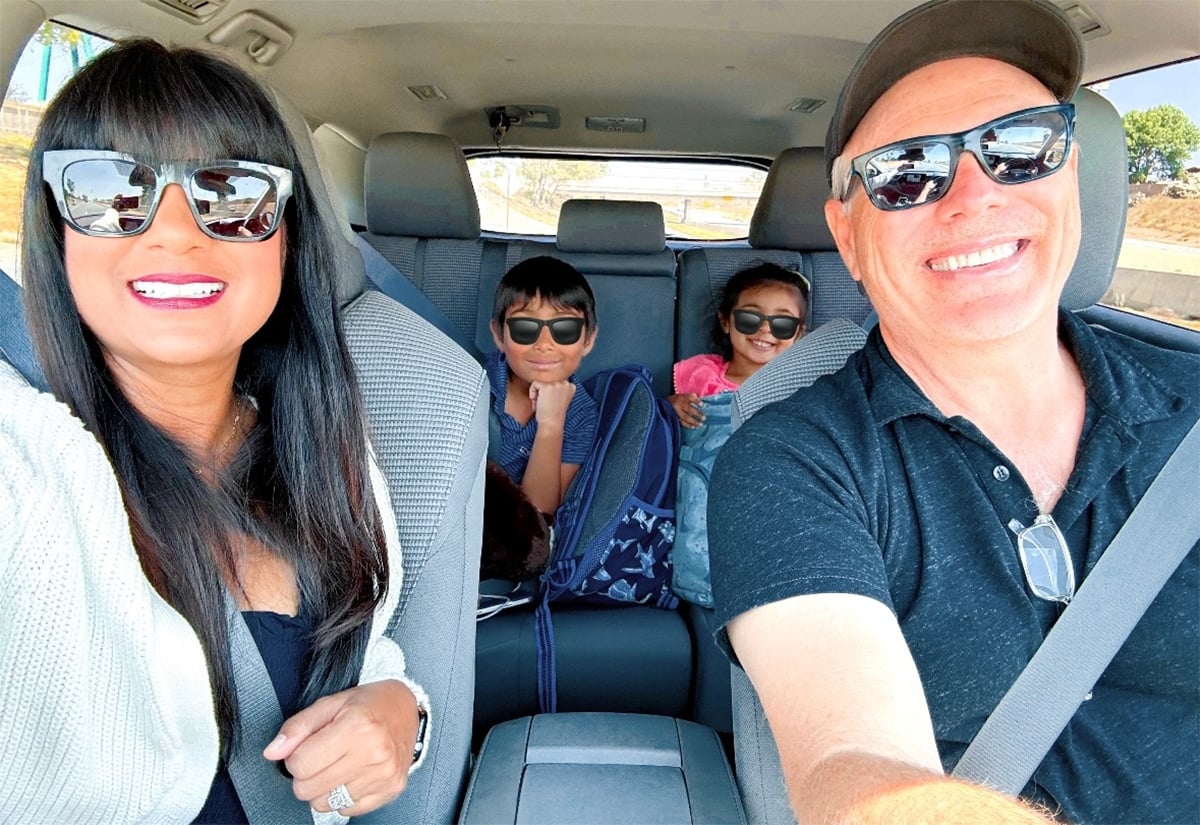This post contains references to products from one or more of our advertisers. We may receive compensation when you click on links to those products. For an explanation of our Advertising Disclosure, visit this page.
Your summer travels may look slightly different this year. Instead of packing your bags and going to the airport, you will keep the wheels rolling for an epic road trip. These tips can help you enjoy a memorable journey as you explore new places or return to nearby favorites.

Research Current Travel Restrictions
Make sure you research the current operating hours and domestic travel restrictions to avoid closed landmarks. Many places only offer limited services this year. One of the last things you want to be like the Griswold family in National Lampoon’s Vacation when they finally made it to Walley World.
Mandatory self-quarantines can also alter your travel plans. Having to spend your vacation time in a hotel room under quarantine puts a damper on any road trip. Staying near home can help you avoid travel bans and still have the opportunity to escape home.
Related: Coronavirus Resource Page for Travelers
Don’t Rely on Phone GPS Exclusively
Do you use your phone GPS app around town? Mobile GPS apps are quite intelligent and can find alternate routes to avoid road closures and traffic jams. However, you may want a secondary navigation tool when taking a long trip.
If you plan on exploring rugged back roads or traveling across the Great Plains where you might go several hours before coming across a gas station or store, a paper map or road atlas is essential. You might be able to get a current highway map at a state welcome center. Buying your own atlas beforehand can give you more detail.
A standalone GPS device will get reception in most areas when you lose cell phone reception. However, navigating potential routes on a tiny screen can be frustrating.
Using a paper map or atlas is the ability to highlight your route with a pen or marker. You can retrace your steps to avoid bad directions that GPS devices sometimes deliver. We can all probably recount a time when a “GPS shortcut” was actually a wrong turn down a narrow or twisty road.
Related: Best Gas Credit Cards
Bring Audiobooks and Movies
Long road trips are a perfect opportunity to see how many conversation topics you can have. Once you’re ready for a break from the chatter, audiobooks, podcasts, and movies can keep boredom at bay. In-car entertainment can also break up the silence and keep you mentally alert during boring routes.
If you’re traveling with small children, in-car entertainment can maintain sanity on long travel days. Downloading content to your phone before leaving town avoids exhausting your monthly data plans and coverage dead spots. Satellite radio also offers a variety of audio content from music to talk shows.
Your passengers may decide to watch an inspirational or whimsical travel movie if your car has a movie system. Downloading movies to a tablet is another option.
You can also download and listen to travel podcasts (don’t forget to add the official Johnny Jet podcast to your queue!).
Pack Plenty of Snacks
Food and beverages can buy you more driving time as you don’t have to take time to stop for snacks. Bring extra food is also helpful if you’re driving in rural America where towns are few and far between. Consider bringing a cooler or a travel fridge to keep items cold. Use your credit card for grocery purchases to keep earning rewards while you travel.
Make a Tentative Travel Itinerary
You can drive many miles on your road trip but you don’t want to squander your travel time. Write a potential travel itinerary for each day. This list helps you decide what you can really see. For instance, if you must drive 800 miles in one day, you won’t have much time to sightsee before running out of daylight.
Prioritize the landmarks you want to visit and the activities you want to do. Then, estimate how soon you must start driving each day and the travel distance between each spot.
Consider adding local restaurants, businesses, and attractions to your itinerary. These small places may offer a more intimate experience than a well-known chain. You might also be able to avoid large crowds if you go to places that are off the main route. Once you arrive in the area, ask the locals or your Airbnb host where the best spots to go are. Word-of-mouth referrals can be better than Trip Advisor or Yelp reviews.
Make Advance Travel Reservations
Booking hotel rooms and tourist reservations ahead of time can help you find travel discounts. Using a hotel credit card to reserve a room might let you get a complimentary upgrade. Booking in advance also means you have first dibs at a lodging that’s social distancing friendly or tour times that match your travel schedule.
Also, research City Passes or other tour packages that can save you money if you’re spending multiple days in one place.
Bring a Car Safety Kit
You most likely won’t need to call roadside assistance, but make sure you have a well-stocked car safety kit. Check your car insurance coverage to see if any roadside assistance offers are included (learn more in our car insurance guides and resources). This should include the following items:
- Flat tire repair kit
- Battery jumper cables
- First aid kit
- Emergency flares
- Spare clothes
- Light jacket or sweater
Having extra food, water, sanitizer, and even toilet paper are good ideas. If you’re going on a long trip and have an old car, you can rent a car for a road trip and avoid putting the miles on your own ride. Car rentals also give you the option of upgrading to a vehicle with more storage space and legroom.
You can also use an RV rental service. RVshare lets you see options for a large selection of inventory. There are even pet-friendly RV options to choose from. Traveling by RV can make for a unique and memorable experience.
Related: Best Credit Cards With Travel Insurance Perks
Be Flexible
The best part of going on the road trip is that you decide where to go and when to stop. You’re behind the steering wheel, after all. When flying, going on a cruise, or taking a commercial bus tour, you must adhere to the travel schedule or you get stranded.
Your tentative travel plan gives you an idea of the best places to visit or eat at. You may realize that some activities require more time (or less) than you anticipate. Being flexible means you can make last-minute changes to your travel plan and you don’t have to pay change fees or go on standby.
Final Thoughts
Many families are reviving the idea of taking road trips to take a vacation but avoid dense public places such as airports. This can be a great year to stay within your region. However, following these tips can help you plan a successful cross-country road trip by RV or car. Don’t forget to use one of the best credit cards for road trips. You’ll earn points or miles for your purchases and may even have added protections built into them!
Related Articles:



